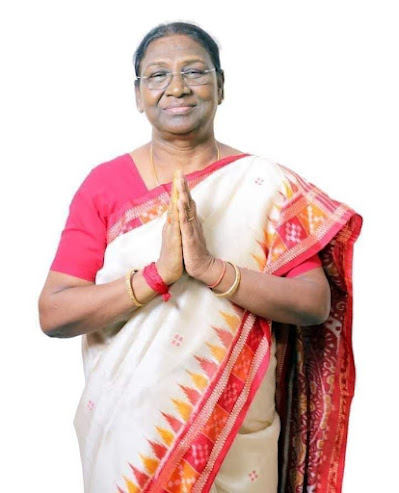Introduction:
India is a country of diverse cultures and traditions, and its political leaders need to represent that diversity. One such leader is her Droupadi Murmu, the first Adivasi woman to hold the office of governor of an Indian state. In this post, we take a closer look at Droupadi Murmu's career, achievements, and vision for the future.
Background:
Droupadi Murmu was born on June 20, 1958, in a small village in Orissa. Raised in a family that values her education and hard work, she earned her Bachelor of Arts degree and Master of Arts degree in Political Science from Utkal University in Orissa. Her academic achievements have led her to a career in politics and she has worked in both the public and private sectors.
achievement:
Droupadi Murmu's political career began in 1997 when she was elected to the Orissa Legislature as a member of the Bharatiya She Janata Party (BJP). From 2014 to 2020, she was a member of the Rajya Sabha. In 2017, she was appointed Governor of Jharkhand, becoming the first Adivasi woman in India to hold the position. As her governor, she has worked to advance education, health, and the empowerment of women and marginalized communities. Future vision:
Looking to the future, Droupadi Murmu is eager to continue her work on behalf of the people of Jharkhand and across India. Her goal is to create a society where everyone enjoys equal rights and opportunities regardless of caste, gender, or economic status. We believe in the importance of governance.
Droupadi Murmu's challenges:
As an Adivasi woman in Indian politics, Droupadi Murmu has experienced her share of challenges and discrimination. She had to work hard to earn the respect and trust of her peers and voters. However, she has remained true to her own principles and has worked tirelessly to advance the interests of the marginalized community which she represents.
Contribution to empowering women:
Droupadi Murmu is a strong advocate of women's empowerment and has campaigned to promote women's rights and interests throughout her career. She has been involved in numerous initiatives aimed at improving the lives of women, including those related to education, health, and economic empowerment. As Governor of Jharkhand, she has also launched several programs to promote gender equality and women's rights.
Recognition and Awards:
Draupadi Murum's contributions to Indian politics and society are widely recognized and she has received numerous awards and honors. In 2019, she received the Best Governor Award from the President of India for her outstanding achievements as Governor of Jharkhand. She has also been recognized by various organizations for her contributions to women's empowerment, tribal welfare, and education.


Comments
Post a Comment